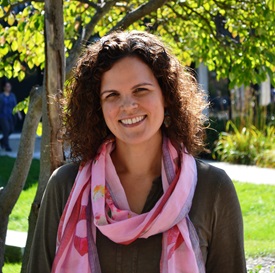College's New Degree Program Builds Strong Base for Mental Health Counseling
by Tom Hanlon / Feb 25, 2022

With the launch of a new master’s program, the College of Education is at the forefront of a new, emerging identity within the profession of mental health counseling.
When the Illinois Board of Education gave the College of Education the green light in March 2021 to move forward with a Master’s of Science in Mental Health Counseling program, the College was ready to go.
 “The American Psychological Association had been talking for many years about accrediting programs at the master’s level within the realm of psychological sciences,” says Lisa Kinderman, clinical assistant professor in the Counseling Psychology Division of the Department of Educational Psychology. “We wanted to be poised to influence or be part of this new emerging identity within the profession, and we also saw an opportunity to create a program that is different than many of the other programs that are offered in the state.”
“The American Psychological Association had been talking for many years about accrediting programs at the master’s level within the realm of psychological sciences,” says Lisa Kinderman, clinical assistant professor in the Counseling Psychology Division of the Department of Educational Psychology. “We wanted to be poised to influence or be part of this new emerging identity within the profession, and we also saw an opportunity to create a program that is different than many of the other programs that are offered in the state.”
The College officially rolled out its new master’s program in mental health counseling in Fall 2021, starting with a cohort of two.
“We hope to eventually grow to a cohort of about 10 over five years,” says Kinderman, who is the program coordinator. “We want to keep it small. We’re a close-knit community where strong mentorships are possible, and you might not be able to get that in master’s programs enrolling much larger cohorts of students.”
Rigorous Curriculum
The two-year program, covering 61 credit hours and 700 field placement hours, is intense, says Kinderman. “There’s a lot going on in the curriculum,” she notes. “We wish to create a research-informed, culturally-sensitive foundation for our students to build upon in their clinical work, which incorporates a wide range of interventions, including outreach and prevention.”
Students, she says, will come out of the program Illinois Professional Counselor (LCP) licensure eligible.
“They could end up working in a counseling center or community mental health agency or at a private practice, or anywhere where mental health services are being provided,” Kinderman says. “It’s also a good program for students who are interested in working in higher education.”
Kinderman notes that the program is psychology-identified, not counselor-identified.
“Our department values the interdependent and complementary nature of research and practice within a developmental and multicultural perspective. Our training offers opportunities that are unique to our campus and our community.”
As for the 700 hours of field placement, 100 take place in the first year, with 600 internship hours consuming much of the second year.
“We’re working with partner agencies on campus to develop clinical fieldwork placements, so students are able to receive close mentoring and fostering of their clinical skills,” Kinderman says. “We’re working with DRES (Disability Resources & Educational Services) and with the Career Center and the Counseling Center, so if students are interested in disability coaching, career counseling, university counseling, or working in a higher education setting, this is a really good program for them.”
Powerful Place to Launch Career
The program is brand new, but is both serving a much-needed purpose and promising to be a program that truly stands out from similar programs, as Kinderman hopes.
“We’re training students to be skilled in the profession of service provision and to adopt the values and ethics associated with being a competent, socially responsible mental health counselor,” she says.
“We have leading scholars and instructors in the fields of multicultural diversity, developmental sciences, vocational psychology, and clinical practice. It’s a very powerful place for a master’s student to land. We’re helping them launch into their careers.”
To learn more about the Master’s of Science in Mental Health Counseling program, or to apply to the program, click here.